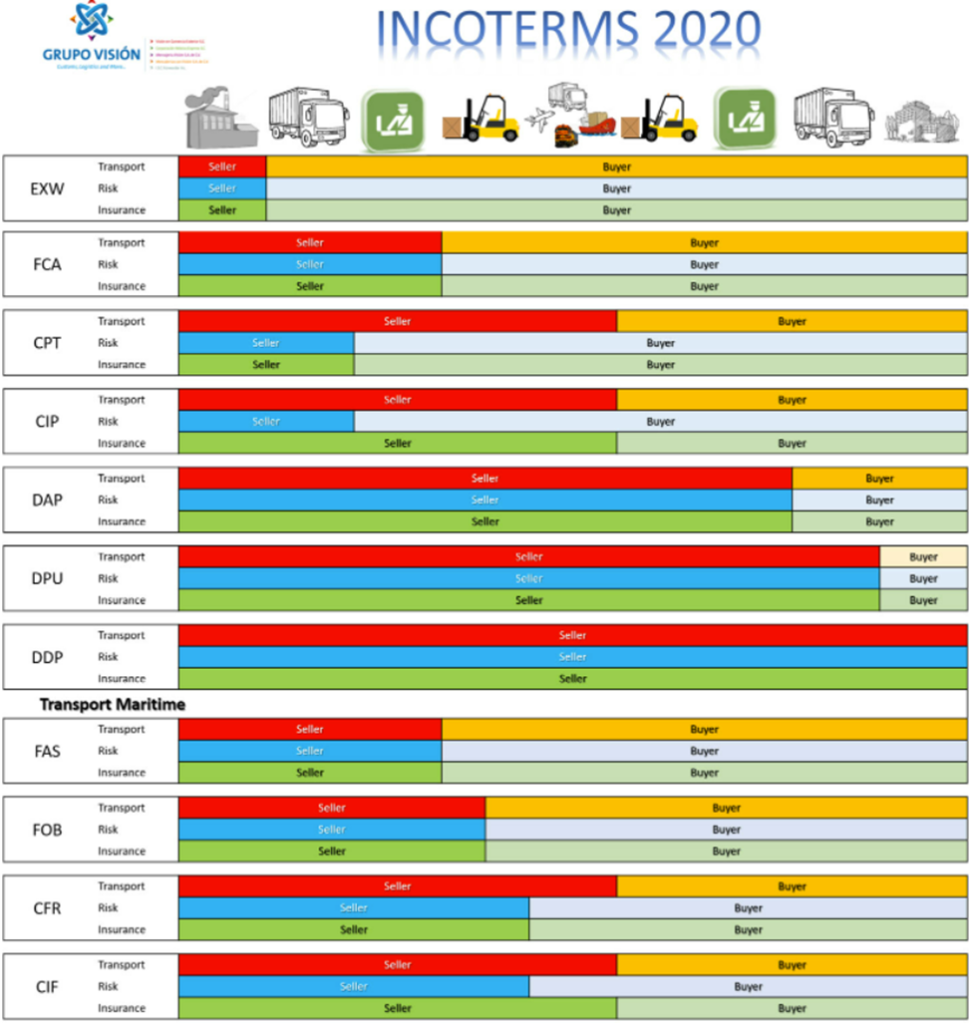In our last class, professor Jose made an introduction about the International Commercial Terms (Incoterms) and their importance in worldwide interexchange of goods and services. By definition, Incoterms are a set of 11 globally accepted standards, issued by the International Chamber of Commerce (ICC), that specify sellers’ and purchasers’ duties. Incoterms define who is responsible for paying for and handling the cargo, as well as for insurance, documentation, customs clearance, and other logistical tasks. (https://bit.ly/3MU2xYs). Incoterms are not compulsory regulations; in order for them to have legal validity, the parties must explicitly integrate them into their contract.
The ICC originally proposed Incoterms in 1921, and the first Incoterms regulations were developed in 1936. In 1936, they were formally classified as Incoterms. Incoterms have since grown into a defined international contractual standard. They are updated on a regular basis when major international trade events occur. In 1953, 1967, 1976, 1980, 2000, 2010, and 2020, amendments and additions were made. 13 ICC commissions formed of private-sector experts from throughout the world decide on these international trade terminology. These people specialize in anything from local issues to multinational business. (https://bit.ly/3KXJviq)
The Incoterms are divided into four principal categories: E, F, C and D.
Category E (Departure), which contains only one trade term, i.e. EXW (Ex Works).
Category F (Main Carriage Unpaid), which contains three trade terms:
- FCA (Free Carrier)
- FAS (Free Alongside Ship)
- FOB (Free on Board)
Category C (Main Carriage Paid), which contains four trade terms:
- CPT (Carriage paid to)
- CIP (Carriage and Insurance paid to)
- CFR (Cost and Freight)
- CIF (Cost, Insurance and Freight)
Category D (Arrival), which contains three trade terms:
- DAP (Delivered at Place)
- DPU (Delivered at Place Unloaded)
- DDP (Delivered Duty Paid)
The four above-mentioned categories can also be classified as per the means of transportation:
- Incoterms for any mode of transport: EXW, FCA, CPT, CIP, DPU, DAP and DDP;
- Incoterms only for sea and inland waterway transport: FAS, FOB, CFR and CIF.
If you want to have more detailed information on each category, I invite you to visit Aceris Law’s website (https://bit.ly/38d5Paz).
In below image, you can get a resumed interpretation on the eleven incoterms:

This topic is very important to have in mind at the moment when two companies are doing business. Some people may find this not as important as it should be, because they can think “what can go wrong?” or just think that in business it only matters the payment and receive/deliver the merchandise in good order. But these incoterms can resolve any unexpected matter, because they clearly establish the responsibility of both parties, who, when, and where the risk is transferred and who must respond or act if certain situation is presented. So, always have in mind this part in business so you won’t find any unpleasant surprises in your negotiations.